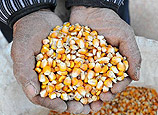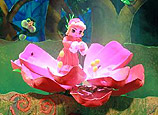
In addition to Meishe, there are 13 other nearby villages that have benefited from the selenium rich soil, which makes it a paradise for growing papaya, lychee and huanghuali, a rare species of rosewood.
In recent years, the price of the rare wood, used for furniture since the Ming Dynasty (1368-1644), has skyrocketed to about 20,000 yuan ($3,200) for 0.5 kg.
But just two decades ago, Meishe was poor and lacked basic resources like clean water, electricity and gas.
For generations, villagers used the black basalt to build houses and pigsties and chopped down the forest for fuel to keep warm and cook.
"In the past, we cut down all the wood in the mountains for firewood," Wang admits.
Among the harmful environmental effects of this deforestation were frequent landslides.
"Waste and garbage were everywhere. Life was a disaster then," Wang recalls.
Even water was a precious resource in this tropical paradise, as vats collected rainfall that drained off roofs.


















 Beijing experiences windy weather, temperature drop
Beijing experiences windy weather, temperature drop


![]()
